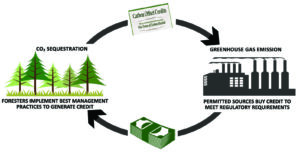Can Anyone Trade Carbon Credits?
Anyone Trade Carbon Credits
Carbon credits are allowances that companies are allowed to emit, and if they exceed the number of credits, they must purchase additional credits. These credits can be used to offset the amount of carbon dioxide the company is producing, or they can be used to reduce the amount of carbon they are producing.
There are two types of markets for trade carbon credits. The first is the regulated market, and the second is the voluntary market. The regulated market is a legal contract in which a company must meet specific emission standards. In order to achieve this, the company must use technology or other methods to reduce its emissions.

The best way to know if a particular market is the one for you is to learn about its regulations and how it works. For example, the United Nations Development Programme provides advice to governments and companies on how to make and produce credits. A company can also participate in a local project, such as in a state or province.
Can Anyone Trade Carbon Credits?
A company can also create its own carbon market. This can be a conglomerate between different operations within the same global organization, or it can be a small, private project for a single business. In the case of a global organization, the carbon market could be an internal, or external, voluntary market.
The carbon credit market is growing rapidly, and recent studies have predicted that it will reach $100 billion a year by 2050. There are several ways to invest in this area, including through carbon ETFs and hedge funds. However, it’s a good idea to speak with an accountant or financial advisor before putting any money into it.
Carbon offsets are a more ambiguous, but still a significant, alternative to reducing carbon emissions. They are less tangible than carbon credits, but can still prove to be very useful for companies looking to make greener choices. For instance, if a company produces more hydrocarbon than it should, it can sell the excess to a company that is able to emit more carbon dioxide. Using these offsets can be a way for a company to delay making any environmentally friendly changes, or to simply buy more time.
For some, the carbon offset market may seem like a scam. But it can actually be a legitimate business venture, as long as the market is run by an ethical and responsible entity. For instance, there are independent certification organizations that vouch for the quality of offsets.
The carbon credit market is one of the fastest-growing areas in finance, and is not limited to companies. Individuals can take part in this market by purchasing carbon credits or futures contracts. There are also popular investment apps that allow people to trade these options. In fact, the European Union’s own market, the EUA (European Union Allowances), has sparked controversy, as some traders have foretold a tightening of emissions caps worldwide.
Buying and selling carbon credits can be a profitable and worthwhile endeavor for anyone. However, it’s not always easy to decide which company to invest in.